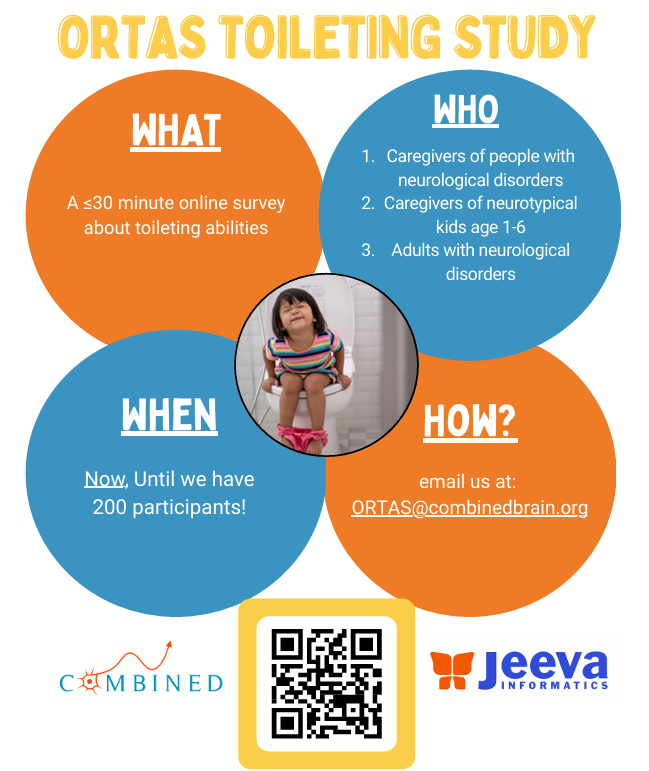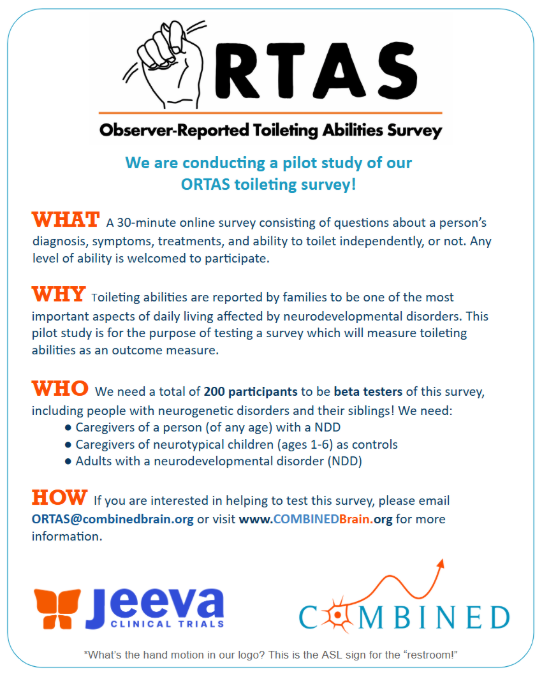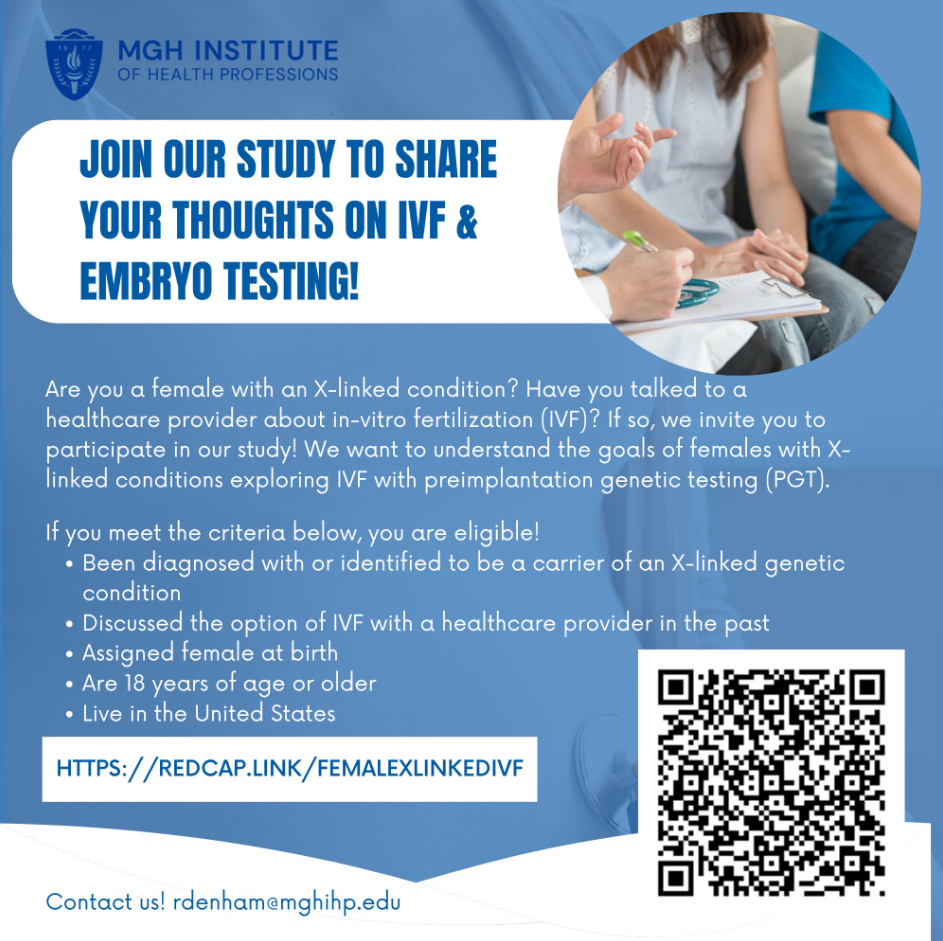
Clinical Trials
Studies &
Love Never Sinks connects families and researchers to move Lesch-Nyhan research forward. This page shares information about current studies and clinical trials that individuals and families may participate in. Each study helps researchers deepen understanding of Lesch-Nyhan disease and brings the community one step closer to improved treatments and care.
The NIH is currently conducting a study that will explore the natural history and mechanisms of novel or known but incompletely characterized disorders of pyrimidine and purine metabolism (DPPMs). Eligible participants will be ascertained by identifying biochemical abnormalities in the levels of purines, pyrimidines and related compounds in body fluids, abnormal activity of enzymes, and/or identifying pathogenic variants in genes linked to purines and pyrimidine metabolism. We will collect participants DNA for genetic and genomic analyses, body fluids for biochemical analysis, blood and tissue samples for enzyme analysis, gastrointestinal samples for microbiome analysis. Some participants may undergo skin biopsy. Study subjects will be offered medical, laboratory, and imaging studies at the NIH Clinical Research Center consistent with the standards of care. Collected data will be analyzed to improve understanding of the natural history, develop statistical prediction models, identify and validate novel biomarkers.
There is an opportunity to participate in a natural history protocol at the National Institutes of Health (NIH) through National Human Genome Research Institute (NHGRI) in Bethesda, Maryland. Dr. Oleg Shchelochkov, MD and Shannon Haines, CGC are part of the Purine and Pyrimidine Unit of NHGRI and are available for questions. Participation starts via telehealth appointments and involves one weekly visit to the NIH annually. If you have questions about this opportunity, including travel/stay/logistics please contact shannon.haines@nih.gov to set up a phone/video conversation!
Oleg A. Shchelochkov, M.D.
Senior Clinician
Office of the Clinical Director NHGRI
Shannon Haines, MS, CGC
she/her
Genetic Counselor, Purine and Pyrimidine Unit
As part of our partnership with CombinedBrain, we are sharing a pilot study with our community.
We are conducting a pilot study for our ORTAS toileting survey!
What: A 30-minute online survey consisting of questions about a person’s diagnosis, symptoms, treatments, and ability to toilet independently, or not. Any level of ability is welcomed to participate.
Why: Toileting abilities are reported by families to be one of the most important aspects of daily living affected by neurodevelopmental disorders. This pilot study is for the purpose of testing a survey which will measure toileting abilities as an outcome measure.
Who: We need a total of 200 participants to be beta testers of this survey, including people with neurogenetic disorders and their siblings! We need:
Caregivers of a person (of any age) with a NEE
Caregivers of neurotypical children (age 1 – 6) as controls
Adults with a neurodevelopmental disorder (NDD)
How: If you are interested in helping to test this survey, please email ORTAS@combinedbrain.org or visit www.CombinedBrain.org for more information.
What is WINGS (Web Intervention for Parents of Youth with Genetic Syndromes)?
The WINGS study is a challenging behavior study with the purpose of testing telehealth interventions and providing behavioral support and strategies to parents of children with intellectual disabilities.
Research Opportunity for Parents!
Are you a parent of a 2-12-year-old with a genetic syndrome and intellectual disability? Does your child experience challenging behaviors? Join the WINGS Study, a web-based research intervention designed to help parents develop effective strategies for managing these challenges.
Completely Remote
Receive up to $305 for participation
If you’re interested or would like to speak with a team member, click the link below:
For more information, contact us at 312-563-2844 or WINGSStudy@rush.edu
Visit our website: https://wingsstudy.wixsite.com/wingsresearchstudy
email wingsstudy@rush.edu
For Carriers of Lesch-Nyhan
Are you a female with an X-linked condition? Have you talked to a healthcare provider about in-vitro fertilization (IVF)? If so, we invite you to participate in our study!
My name is Rachel Denham and I am a graduate student at the MGH Institute of Health Professions. I’m inviting you to participate in a study that explores the experiences and perspectives of females with an X-linked condition on in vitro fertilization (IVF) for preimplantation genetic testing (PGT).
PGT-M (preimplantation genetic testing for monogenic disorders) is a genetic test used with in vitro fertilization (IVF). IVF is a process where eggs are fertilized by sperm outside the body to create embryos. PGT-M is done before putting the embryo into the uterus. This test looks for inherited genetic diseases caused by a change in one gene. PGT-M can help find out which embryos do not have the disease. Doctors can then select an embryo to try to start a pregnancy. For some families, their goal is to lower their pregnancy's risk for a genetic condition. For other families, this allows them to better understand their baby's risk for a given genetic condition.
I will use the results of my research to amplify the voices of the female X-linked community. My hope is that genetic counselors and other reproductive healthcare providers will use this information to improve care and increase awareness of the motivations for pursuing IVF in this community. This research could also support the creation of IVF policies and laws for females with X-linked conditions and could increase awareness of the need for insurance coverage of IVF and PGT-M services for this group.
The survey will take about 15-20 minutes to complete.
If you meet the criteria below, you are eligible!
- Been diagnosed with or identified to be a carrier of an X-linked genetic condition
- Discussed the option of IVF with a healthcare provider in the past
- Assigned female at birth
- Are 18 years of age or older
- Live in the United States
Please click the link provided below to complete the survey.
Thank you so much for your time and effort!
If you have any questions regarding this study, you may contact: rdenham@mghip.edu
The NIH is currently conducting a study that will explore the natural history and mechanisms of novel or known but incompletely characterized disorders of pyrimidine and purine metabolism (DPPMs). Eligible participants will be ascertained by identifying biochemical abnormalities in the levels of purines, pyrimidines and related compounds in body fluids, abnormal activity of enzymes, and/or identifying pathogenic variants in genes linked to purines and pyrimidine metabolism. We will collect participants DNA for genetic and genomic analyses, body fluids for biochemical analysis, blood and tissue samples for enzyme analysis, gastrointestinal samples for microbiome analysis. Some participants may undergo skin biopsy. Study subjects will be offered medical, laboratory, and imaging studies at the NIH Clinical Research Center consistent with the standards of care. Collected data will be analyzed to improve understanding of the natural history, develop statistical prediction models, identify and validate novel biomarkers.
There is an opportunity to participate in a natural history protocol at the National Institutes of Health (NIH) through National Human Genome Research Institute (NHGRI) in Bethesda, Maryland. Dr. Oleg Shchelochkov, MD and Shannon Haines, CGC are part of the Purine and Pyrimidine Unit of NHGRI and are available for questions. Participation starts via telehealth appointments and involves one weekly visit to the NIH annually. If you have questions about this opportunity, including travel/stay/logistics please contact shannon.haines@nih.gov to set up a phone/video conversation!
This Study is also looking to collect data affected individuals’ family members (carriers)
Oleg A. Shchelochkov, M.D.
Senior Clinician
Office of the Clinical Director NHGRI
Shannon Haines, MS, CGC
she/her
Genetic Counselor, Purine and Pyrimidine Unit
Previous Studies
Project WellCAST started in 2019 as a partnership between patient foundations, researchers, and clinicians who were interested in helping families of children with rare disorders access evidence-based treatments from home. Through Project WellCAST, we study how a variety of remotely-accessed resources and therapies might impact the lives of rare disorder caregivers.
FAQs
What is the difference between ‘Studies’ and ‘Clinical Trials’?
The terms "studies" and "clinical trials" are often used interchangeably, but they have distinct meanings in the context of research:
1. Study:
Definition: A broad term that refers to any scientific investigation designed to answer a specific research question.
Types: Studies can be observational (where researchers observe outcomes without intervention) or interventional (where researchers introduce treatments or interventions).
Examples: Surveys, case studies, cohort studies, and laboratory research are all types of studies.
2. Clinical Trial:
Definition: A specific type of interventional study where participants receive medical interventions (such as new treatments, drugs, or therapies) to evaluate their safety and effectiveness.
Phases: Clinical trials are conducted in phases (I-IV), each designed to answer different questions about the intervention’s safety, dosage, and efficacy.
Regulation: Clinical trials are usually more regulated, with strict protocols and oversight from medical and regulatory bodies.
Key Difference:
Scope: All clinical trials are studies, but not all studies are clinical trials. A study might simply observe existing conditions, while a clinical trial actively tests new interventions on participants.
In summary, "clinical trials" specifically refer to experiments testing medical interventions on participants, while "studies" is a broader term encompassing all types of research investigations.









